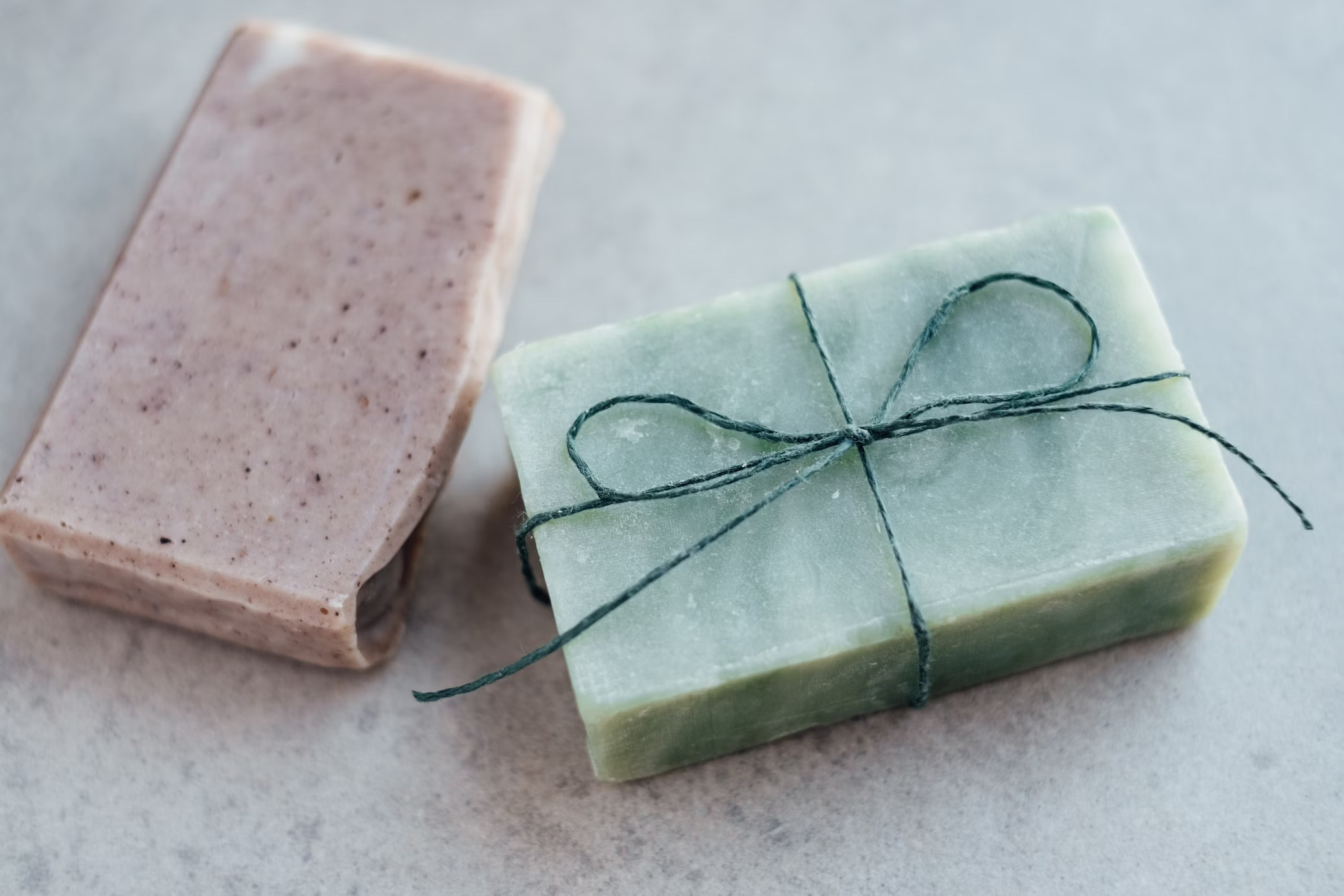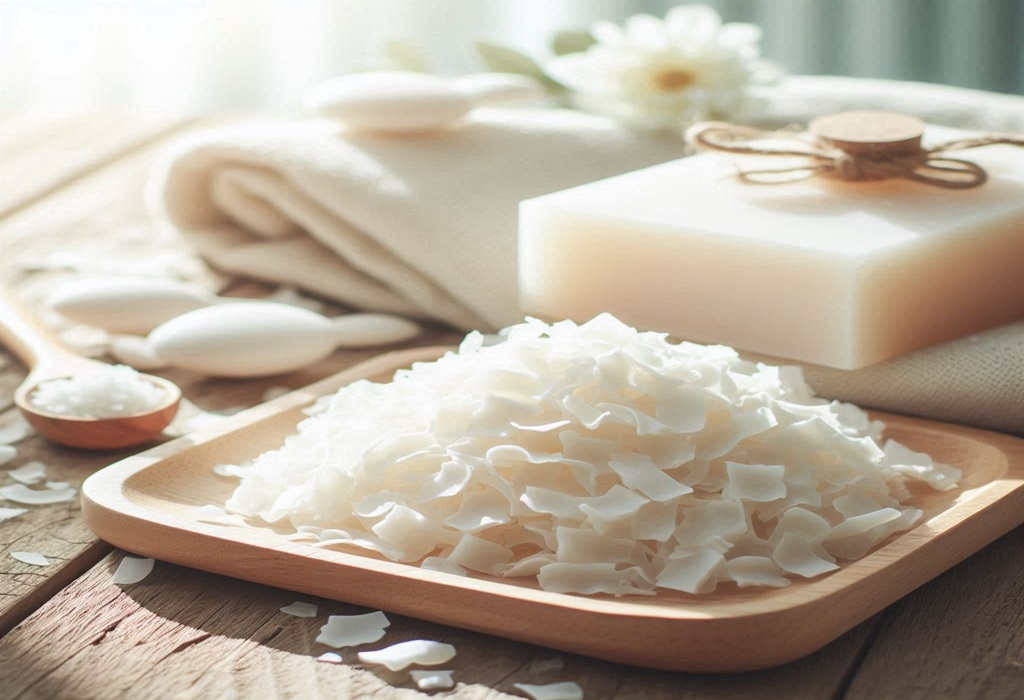
Natural Hypoallergenic Soap and Its Benefits for Eczema and Psoriasis Sufferers
Eczema and psoriasis are chronic skin conditions that affect millions of people worldwide. Both conditions cause red, itchy, and sometimes painful patches on the skin,

In our daily quest for cleanliness, soap plays a vital role in maintaining personal hygiene. With an array of options available, consumers often find themselves faced with the decision to choose between natural and commercial soaps. While both serve the primary purpose of cleansing, the differences between the two are more profound than meets the eye.
One of the primary distinctions between natural and commercial soaps lies in their ingredients. Natural soaps are crafted using materials derived from nature, such as plant oils, herbs, and botanical extracts. On the other hand, commercial soaps often contain a multitude of synthetic ingredients, including artificial fragrances, colours, and chemical additives.
The use of natural ingredients in soap offers a plethora of benefits. Plant-based oils, such as olive oil, coconut oil, and shea butter, are rich in vitamins and antioxidants that nourish and moisturize the skin. These oils also contribute to the soap’s ability to cleanse without stripping the skin of its natural oils, leaving it soft and supple.
In contrast, commercial soaps frequently incorporate harsh chemicals like sulfates and parabens, which may cause skin irritation and contribute to dryness. The synthetic fragrances and dyes used in these soaps can also trigger allergies and sensitivities in some individuals.
Natural soaps are often more environmentally friendly compared to their commercial counterparts. The production of natural soaps typically involves sustainable practices, with many manufacturers opting for eco-friendly packaging. Additionally, the biodegradable nature of natural soap ensures that it doesn’t leave a lasting impact on the environment.
Commercial soaps, on the other hand, may contribute to pollution due to the manufacturing processes involving chemicals and non-biodegradable packaging. The use of synthetic additives in commercial soaps can also have adverse effects on aquatic ecosystems when these substances are washed down the drain.
Glycerin is a natural byproduct of the soap-making process and is prized for its moisturizing properties. Natural soaps retain glycerin, providing an extra layer of hydration for the skin. Glycerin acts as a humectant, attracting and retaining moisture, which is especially beneficial for individuals with dry or sensitive skin.
Commercial soap manufacturers often remove glycerin from their products and sell it separately or use it in more expensive formulations. This practice leaves the soap with a harsher cleansing effect and can contribute to skin dryness.
Natural soaps are often handmade by artisans who take pride in their craft. This hands-on approach allows for more attention to detail and a greater emphasis on quality. Artisanal soapmakers are more likely to prioritize the use of sustainable and ethically sourced ingredients, resulting in a product that aligns with both personal and environmental values.
Commercial soaps, produced on a large scale, prioritize efficiency and cost-effectiveness. This often leads to a compromise in the quality of ingredients and the production process. Mass production may also involve the use of animal testing, a practice that is vehemently opposed by advocates of natural and cruelty-free products.
Individuals with sensitive skin often find natural soaps to be a gentler alternative. The absence of harsh chemicals and synthetic additives reduces the risk of skin irritation and allergic reactions. Natural soaps are especially favored by those prone to conditions such as eczema or dermatitis.
Commercial soaps, laden with artificial fragrances and preservatives, may exacerbate skin issues for those with sensitive skin. The abrasive nature of certain chemicals can strip the skin’s protective barrier, leading to dryness, redness, and discomfort.
In the eternal debate between natural and commercial soaps, the choice ultimately depends on individual preferences, skin type, and environmental consciousness. While natural soaps boast a range of benefits, commercial soaps remain a convenient and affordable option for many. Making an informed decision involves considering not only personal skincare needs but also the broader impact on the environment. Whatever your choice, understanding the differences allows you to make a conscious decision that aligns with your values and contributes to a healthier, more sustainable future.

Eczema and psoriasis are chronic skin conditions that affect millions of people worldwide. Both conditions cause red, itchy, and sometimes painful patches on the skin,

Aging skin requires special care and attention. As we grow older, our skin undergoes several changes, including decreased elasticity, increased dryness, and a higher sensitivity

As parents, ensuring the safety and well-being of our children is a top priority. This concern extends to the products we use on their delicate

In a world where synthetic chemicals dominate our everyday products, natural alternatives are like a breath of fresh air. One such alternative that has been